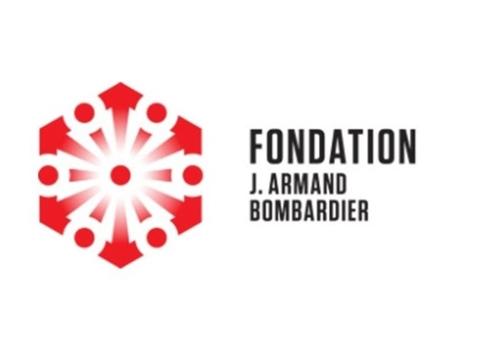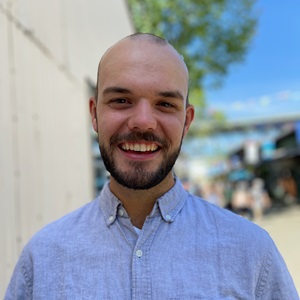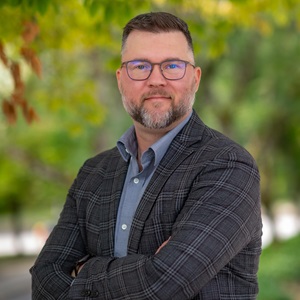
SCARP is proud to celebrate three of our students who were awarded funding by the Fondation J. Armaund Bombardier's Sustainable Transportation fellowship!
The Fondation J. Armaund Bombardier
Fellowships have been made available through an endowment by Bombardier for graduate students in the School of Community of Regional Planning who are focused on research in any one of the three areas:
- Equity and community engagement
- Population and public health
- Environmental and sustainability issues associated with transportation
This Bombardier fellowship is one of several valuable internal awards available to SCARP students who seek funding for and celebration of their work.
SCARP's awardees and their work

Chris French
Awarded submission:
"This is the End of the Line:
Reconstructing Transit Operating Funding in Canada"
Chris French's comprehensive study investigated how urban transit operations are funded across Canada and sought to understand how governments and transit agencies are positioned in terms of their legislative abilities, fiscal capacities, and available revenue tools for funding transit operations.
This work engaged transit agencies from eight urban regions across Canada as well as the Canadian Urban Transit Association, Federation of Canadian Municipalities, and individual transit industry experts. In addition, an examination of how three other countries in the G7 fund transit operations was conducted to determine potential roles and responsibilities for similar levels of government in Canada.
Ultimately, the study proposed policy recommendations for transit agencies, provincial governments, and the Government of Canada with respect to transit operating funding in Canada, and three potential revenue tools were analyzed in the context of eight urban regions across Canada.
Understanding that public transit and active transportation play a key role in addressing some of the most pressing societal challenges including climate change, equity and human health, Chris looks forward to working with cities and public transit agencies in improving their transportation networks. He currently works as a Planner at TransLink and is a member of the Canadian Urban Transit Association's Youth & Emerging Leaders Subcommittee.

Sayani Mandal
Awarded submission:
"Understanding the mobility behavior of immigrants in Metro Vancouver"
Background
Having spent my childhood in Kolkata whose urban patterns are reminiscent of its organic cultural strings, I have been fascinated by the various facets of transportation the city has to offer. It is the only city in the country to have an operational tramway system, whose establishment dates to Colonial India.
After independence, the tramways became the first symbol of public transit in the city and laid the foundation for the commission of India’s first metro railway system. Subsequently, communities living here adapted to the growing public transit system and it played a pivotal role in captivating my interest in sustainable transportation.
This influenced me to be the planner I am today, and that the adoption of sustainable travel is a community-driven choice and therefore, behavioral policymaking can accelerate the uptake of these mobility alternatives. My academic as well as professional pursuits are to examine travel behaviour for bringing equity within transportation.
Research
Through this fellowship at SCARP, I wish to inculcate a behavioral perspective into transport policymaking while ensuring that local communities remain the backbone for transit planning in Metro Vancouver. As part of the MCRP program, I am conducting this research through a Directed Studies course titled, “Understanding the mobility behavior of immigrants in Metro Vancouver”, under the supervision of Dr. Kelly Clifton.
My research will contribute to understanding factors associated with immigrant mode choices in Metro Vancouver and contribute to the scant scholarship in this area, particularly in the Canadian context. In the long run, this work can potentially inform TransLink’s 2050 vision to support Metro Vancouver’s equity goals as highlighted in Metro 2050.
The research will address two questions: first, what are the various economic, social, cultural, environmental, and individual factors that inform mobility behavior of immigrants (specifically South-Asian) in B.C.; and second, how are these factors impacting TransLink’s 2050 vision and long-term planning decisions? These questions will respond to the immigrant population’s mobility needs and propose a framework responsive to the travel behavior of immigrants, as projected for 2050.

Wes Regan
Awarded submission:
"How can planners respond to the rapid increase in misinformation that is eroding trust in planning expertise, including around transportation planning?"
My research addresses an urgent question that lies at the centre of current transportation planning practice and policy – how can planners respond to the rapid increase in misinformation that is eroding trust in planning expertise, including around transportation planning?
This question is important because Canada is a signatory to multiple agreements aimed at reducing carbon emissions and transitioning to a cleaner, healthier, and more sustainable energy future (Government of Canada, 2021).
Yet misinformation about both climate change and planning spreading online, including conspiracy theories about the intentions of planners and governments, has created an emergent ‘last mile’ problem for transportation planners.
The data may support the intervention, the technical merits of the plan may be achievable, but if the politics around a transportation plan become embroiled in controversy and conflict due to misinformation, it might not make it through the last all important step of approval by elected leaders, may be significantly compromised, or the process delayed to the point that it loses momentum and sputters out.
Support for my research from the J. Armand Bombardier Sustainable Transportation Fellowship aims to help planners and planning agencies to make it through this last mile of policymaking terrain, where public perceptions, policy communication and political rhetoric can make the difference between plans being adopted or not. At a time when cities and local governments are looked to as a key front in the battle for a sustainable climate (Bulkeley & Betsill, 2002; Friesecke, 2012) and as growth in digital disinformation and misinformation is giving rise to an “Infodemic” that undermining the ability of governments to respond to global challenges like the covid-19 pandemic and climate change, this project is all the more urgent (UN, 2020, 2023; WHO, 2020).
- Spotlight